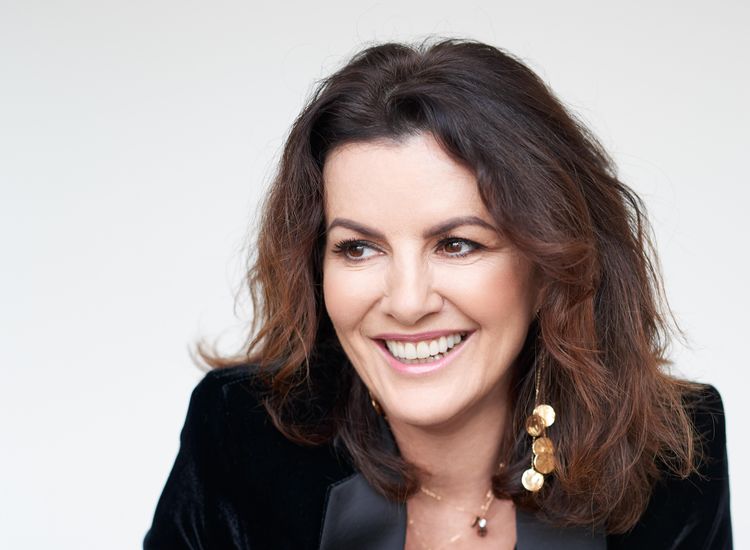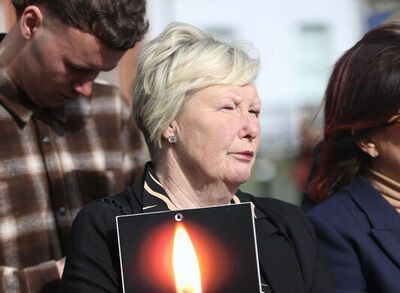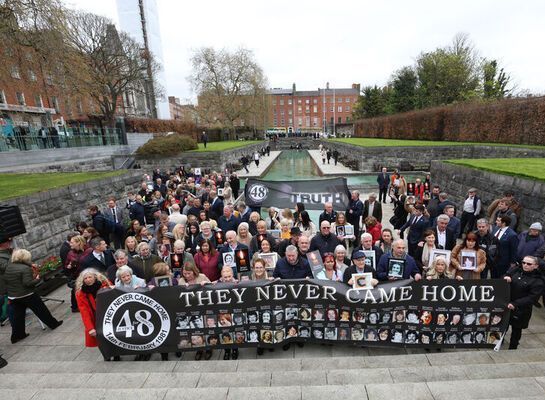For New York rock singer and author Chris Campion, that says it all. No further explanation is necessary.
But there were other key moments during the period a decade ago when he spent three periods in the hospital on First Avenue. There was the time on Houston Street he bumped into a friend who enquired whether he'd do vocals for him on a project. Campion said he would ask his band mates from Knockout Drops to see what their schedule was. "He said: Chris, you're not in that band anymore."
He'd been kicked out by the other members, his closest friends since their teenage years together in Huntington, L.I. "I hadn't checked in with anyone in three months and was completely wayward and disconnected from everything," he said.
The band, however, survived that crisis and is still performing, but with additional literary material. Campion, who described himself as "a bull in the china shop of life," mined his rock 'n roll life and his recovery for an off-Broadway play that had two hit runs and led to a book deal with Penguin. The book, in turn, is the basis for a new show, one in which he uses his considerable talents for mimicry and storytelling.
The singer's tales are set against the backdrop of a suburban Irish-American childhood. However, his parents, who still live in Huntington, began their married life in their old neighborhood.
"Woodside was a big part of my life, because our entire extended family was there," he said.
Campion's father was educated courtesy of the G.I. Bill after he returned from the Korean War, and later he rapidly moved up the corporate sales ladder at IBM. By the 1970s, he had started his own company that bought, sold and leased mainframe computers.
"There were two [types of] parties going on all the time. You had my mom and dad's parties in the house, which were love seats, martinis, Dean Martin wafting out of the big behemoth stereo in the living-room, guys in plaid pants smelling of Vitalis and Marlboro Reds, " said Campion, the fifth of six children. "That was sophisticated until later, when they would get around the piano and sing.
Then there was his brothers' party. "I'd dart out to the garage, which was off the house, and about midway the pot smoke would hit my nose," he said.
The Allman Brothers would be playing. "There were pretty girls in Indian skirts twirling around; the keg hidden behind the lawnmower," he recalled.
The legend next door
"We were always preparing for, in the middle of, or cleaning up from some big-blow out of a party," Campion said.
Then, in 1975, Richie Blackmore, the lead singer of Deep Purple and later Rainbow, moved in next door and stayed 20 years.
In more recent times, a musician friend spotted the rock legend eating at a breakfast place in Montauk and introduced himself. He told him about their mutual acquaintances.
Campion said: "It had been a few years. The name didn't register at first and then he looked up at him and went 'Oh yes, the loud family.'
"You know when the lead guitar player of Deep Purple is calling your family loud it's like: Yeah, you've got to be pretty loud," he said, laughing.
Blackmore, though "intensely private" in Campion's words, interacted with his neighbors over the years. Whenever he'd suffered a reverse in his love life, he could be seen talking to Campion's mother on the deck.
"My mom was his counselor," he recalled.
One summer Blackmore asked Campion to clean his pool while he went on tour with Rainbow. The wage was $20 a week, a lot for a teenager in the early 1980s.
"It was one of those things that mocked me, because I didn't do it," he remembered. "I slowly watched this pool morph into a fish tank, getting greener and greener.
Occasionally, he would do some work to stop it from looking too bad, but didn't do any elaborate cleaning involving chemicals.
The day that Blackmore returned, his mother said: "You go and tell that man that you didn't clean his pool. I don't want you to collect a dime from him." He arrived at the backyard in time to see the English rocker dive in and then swim the pool's length.
"He got up and I looked at him and he was completely slimed," Campion said. "So now we're just staring at each other. I figure this is the moment of truth. Finally he said: 'I owe you some money, don't I?'"
Campion went through the motions of refusing payment, but Blackmore brought him into the house and wrote him a check. "Bang up job, mate" he said. "Smashing."
Another childhood influence was the transistor radio and ear piece given to him by a Woodside relative who wanted him to be able to listen to Rangers and Knicks games after he was sent to bed. Before too long, however, it was tuned to Scott Muni on WNEW and he was turned on to progressive rock.
Campion and the other founder members of Knockout Drops went off to different colleges (he attended Villanova), but regrouped afterwards. For a while, the indie band was the next big thing. "We hit New York in '93 and had a big groundswell," he said.
For a long time, though, it was "one step forward two steps back." He said: "We'd sell out crowds in bigger venues." But the business side never seemed to work out as planned. And outside of the New York, Knockout Drops would always remain the support band.
In the meantime, Campion was "running roughshod over the world. I had a broken off-switch."
He prefers not to blame his particular attraction to Jamison's whiskey entirely on the ups and downs of the rock 'n roll life. Genes played a role too. "You can't swing a cat in my family without hitting an alcoholic," he said.
"Cocaine was always a maintenance drug for me, but booze was the great love of my life," he writes in "Escape from Bellevue."
When he launched into "suicidal diatribes," his fellow musicians had him committed to Bellevue. "You get a perverse sense of importance with three EMTs on each side of you," he said.
His subsequent efforts to convince staff at the hospital that his being there was a big mistake provide a good deal of his literary comic material.
Dry land
There were interventions by his friends -- one of them hosted by his road manager, a even bigger drinker and drug-taker than Campion himself -- and periods spent in rehab clinics.
"Getting sober was really hard," he said. "I was raised in a tradition of Irish bars, and pubs and taverns. I was very wrapped up in the mythology of drinking."
Part of that was the pantheon of literary and musical heroes: Jack Kerouac, Jim Morrison, Brendan Behan.
"The idea of getting sober was unfathomable," he said.
"When I got on dry land and got sober. That's really when life got good. It's all been good since then," he said. "I started seeing the world in color again, having gratitude for life, not thinking about the things I didn't have."
Campion also recovered his faith, which had been in crisis since his college days.
"A lot of the story is me finding my way back to it, and not really giving up on it," he said.
He goes to church, but is not into dogma and prefers the label "spiritual."
Campion recalled an old saying: "Religion is for people who fear hell. Spirituality is for people who've been there."
Chris Campion is serializing "Escape from Bellevue" at Mug Lounge, 448 East 13th St. (at Ave. A) at 8 p.m. every Tuesday night through May 25. There is no cover charge.










